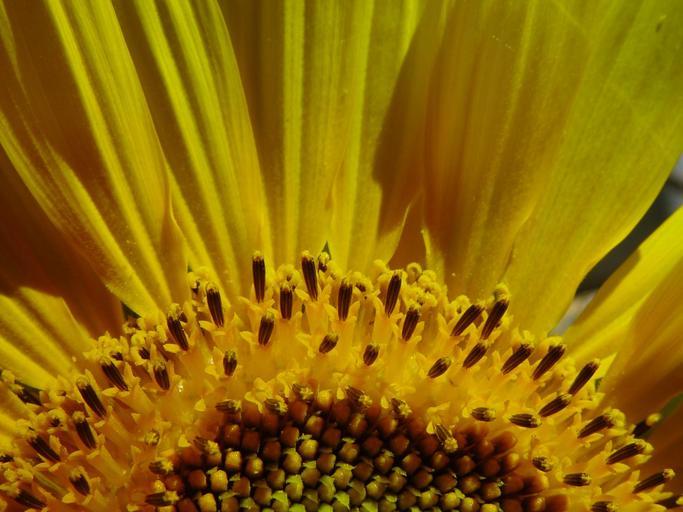Introduction
Portrait photography has long held a special place within the realm of visual arts, evolving from early daguerreotypes to contemporary digital captures. This article delves into the intricate evolution of portrait photography as fine art, exploring its historical roots, cultural significance, and the innovative techniques that have emerged over time. As we journey through this artistic landscape, we will examine how various photographers have influenced this genre and how modern technologies and aesthetics shape our understanding today.
Art in Focus: The Evolution of Portrait Photography as Fine Art is not just a topic for artists or photographers; it resonates with anyone interested in the intersection of creativity and technology. We'll explore various styles including abstract self-portrait photography, faceless self-portrait ideas, and aesthetic colorful portrait photography. Additionally, we’ll discuss the role of art photographers and how they continuously reinvent portrait photography to create breathtaking pieces worthy of admiration in galleries worldwide.
The Historical Roots of Portrait Photography
The Birth of Portrait Photography
Portrait photography traces its origins back to the 19th century when the invention of the camera allowed individuals to capture their likeness for posterity. Early forms included daguerreotypes—metal plates coated with silver halide—produced by pioneers like Louis Daguerre. These images were considered revolutionary for their ability to preserve identity.
The Influence of Cultural Contexts
Throughout history, cultural contexts have shaped portraiture's purpose and style. For instance, royal portraits were designed to convey power and authority, while more intimate family portraits reflected personal relationships. Each era brought unique stylistic choices that defined how subjects were represented.
Technological Advances in Portrait Photography
From Film to Digital: A Paradigm Shift
The transition from film to digital photography marked a significant turning point in the art form. Digital cameras made it easier for photographers to experiment with new techniques such as high dynamic range imaging (HDR) and post-processing software like Adobe Photoshop.
Innovative Equipment for Modern Portrait Shoots
The rise of advanced camera technology has enabled photographers to achieve previously unattainable results. From high-resolution sensors to sophisticated lighting techniques, each piece of equipment plays a crucial role in creating stunning portrait photographs.
Artistic Styles in Portrait Photography
Aesthetic Colorful Portrait Photography: A Fusion of Color and Emotion
Aesthetic colorful portrait photography combines vivid hues with emotional depth, resulting in visually striking images that resonate with viewers on multiple levels. Photographers often employ color theory to evoke specific feelings while maintaining a cohesive composition.

Abstract Self-Portrait Photography: A Journey Beyond Traditional Representation
Abstract self-portrait photography challenges http://mindchronicles027.yousher.com/art-installations-that-challenge-conventional-design-norms conventional notions by presenting subjects in unconventional ways. This style invites viewers to interpret meaning beyond surface appearances and often involves experimental techniques such as double exposure or unusual framing.

Faceless Self-Portrait Ideas: Exploring Identity Without Features
Conceptualizing Facelessness in Art
Faceless self-portraits strip away identifiable features, inviting viewers to engage with themes such as anonymity, vulnerability, and introspection. This approach encourages reflection on personal identity without relying on physical characteristics.
Techniques for Creating Intriguing Faceless Portraits
Photographers can utilize various techniques such as silhouette captures or creative use of props and environments to convey emotion without revealing facial expressions. These methods offer profound commentary on existence beyond traditional identity markers.
Portrait Photography as Fine Art: Bridging Two Worlds
Understanding Fine Art Photography
Fine art photography elevates portraiture from mere documentation to artistic expression. It involves intentional decisions about composition, lighting, and subject matter—transforming photographs into pieces worthy of gallery exhibition.
The Role of Artist-Photographers
Artist-photographers often blur the lines between commercial work and fine art by infusing their unique perspectives into their projects. Their creative vision shapes how audiences perceive not only portraits but also broader societal narratives through imagery.
The Impact of Social Media on Portrait Photography Trends
What Role Does Social Media Play?
Social media platforms like Instagram have revolutionized how photographers share their work and connect with audiences globally. These platforms serve as vibrant galleries where innovative styles emerge rapidly.
Trends Shaping Contemporary Portraiture
As trends evolve online—from minimalist aesthetics to elaborate stylizations—the influence is palpable across all levels of portrait photography practice. Understanding these trends can help aspiring photographers navigate their artistic journeys effectively.
How To Hang a Large Canvas: A Practical Guide for Photographers
Hanging large canvas portraits requires careful planning for optimal presentation:
Choose the Right Wall: Select a prominent space that draws attention. Measure Accurately: Ensure you know your canvas dimensions. Use Appropriate Hardware: Invest in quality hooks or brackets capable of supporting weight. Consider Height: Aim for eye-level placement for maximum impact. Final Adjustments: Step back after hanging; adjust if needed for balance within the space.Each step is crucial in ensuring your artwork creates an engaging atmosphere while highlighting your photographic skills effectively!
FAQs About Portrait Photography
What defines fine art portrait photography?- Fine art portrait photography is characterized by intentional composition, unique storytelling elements, and creative interpretation beyond mere representation.
- Experiment with color palettes during shooting; consider different lighting conditions; use post-processing tools effectively.
- Techniques can include double exposure effects or utilizing reflections creatively; also consider playing with angles.
- Faceless portraits allow exploration into deeper themes like anonymity; they encourage viewers' interpretations based solely on context rather than identity.
- Social media accelerates trend dissemination while enabling broader audience reach—a boon for emerging artists seeking recognition!
- Essential gear may include a DSLR/mirrorless camera, quality lenses (50mm/85mm recommended), external flash/studio lights—and don't forget reflectors!
Conclusion
As we've explored throughout this article titled "Art in Focus: The Evolution of Portrait Photography as Fine Art," it's clear that this genre has undergone remarkable transformations over time—from its historical roots steeped in cultural significance to its contemporary reimagining through innovative techniques and social media influence.

Whether you're an aspiring photographer seeking inspiration or simply someone fascinated by visual arts’ evolution—there’s much value found within understanding these trends! As we move forward into an increasingly digitally driven world filled with opportunities for experimentation—one thing remains certain: the legacy forged by past artists will continue shaping future generations’ approaches toward capturing human experience through the lens!
In closing—embrace your creativity! Explore diverse styles like abstract self-portrait photography or aesthetic colorful portrait photography! The world awaits your unique perspective waiting behind each shutter click!